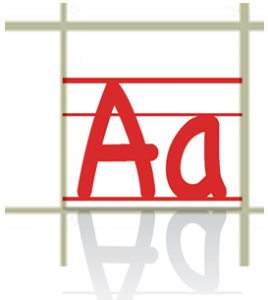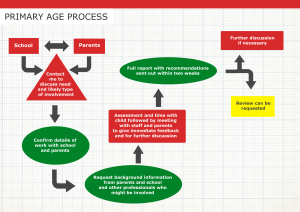 The focus of the assessment or involvement from myself as an Educational Psychologist will vary according to the concerns raised by both parents and school, at the point of referral.
The focus of the assessment or involvement from myself as an Educational Psychologist will vary according to the concerns raised by both parents and school, at the point of referral.
During this primary schooling period, it is important to observe how the child applies themselves to different tasks both within a 1:1 session and also in a class context. Background information would be requested from both school and home and from any other professionals that have been involved with the child to set these observed learning behaviours and achievements in the context of the ‘whole’ child’s world and their experience to date. Depending on the age of the child, different activities will be used during the individual session.
For the younger children this is likely to include play based activities or dynamic type assessments, perhaps with some standardized tasks. A likely second session a few weeks later might be planned to establish the degree of change after specific input.
For the older children in the individual session standardised tests are likely to be used alongside other more dynamic approaches, which will establish the child’s particular set of current learning strengths and weaknesses along with their current levels of attainment
The results and hypotheses of the assessment will then guide how teachers and parents can support the individual child within school and at home. It will also focus on how the individual can start to help themselves with their learning by developing strategies that have been introduced to them and that they find work for them.
Specifically, assessment with the primary aged child can include focussing on:
- Social behaviour
- Self esteem
- Health, including vision and hearing
- Gross and fine motor skills
- Reasoning with language, use of language, phonological awareness
- Perceptual reasoning
- Working memory, auditory memory, visual memory
- Processing Speeds
- Levels of attainments in literacy and maths
- Eligibility for specific access arrangements in preparation for Common Entrance, such as extra time, spell checker etc., as negotiated with the secondary schools.
- Sensory Processing
- Attention and other learning behaviours
- Curiosity levels, the child’s interests
- Emotional awareness: understanding of emotions and different social situations
- Development of the Theory of Mind: the ability to see and/or appreciate situations from another’s point of view, different from their own
- The child’s own view about school and their learning
Considering particular types of profiles is also part of an assessment and this can lead, if viewed as helpful, to specific diagnoses such as Dyslexia, Dyscalculia, Non Verbal Learning Disorder, Dyspraxia, ADHD, Asperger’s Syndrome and Sensory Processing Disorder. [1][2]
Living in the digital age where our children can be considered to be ‘digital natives’, an important part of the assessment is considering how technology can support the learning process. In particular is how technology can support the learning strengths, and help develop or override the weaknesses. At the same time, there is also the ‘management’ and ‘good IT habits’ to focus upon.
To view a diagram of the Primary Age Process please click on the image below.
[1] If there is a significant likelihood of a diagnosis of dyspraxia or sensory processing disorder, a referral to the Occupational Therapist is appropriate
[2] A multi-disciplinary assessment will be recommended if there is a high probability of ADHD or Asperger’s Syndrome, which will usually include a Speech and Language Therapist, a Clinical Psychologist and an Occupational Therapist

